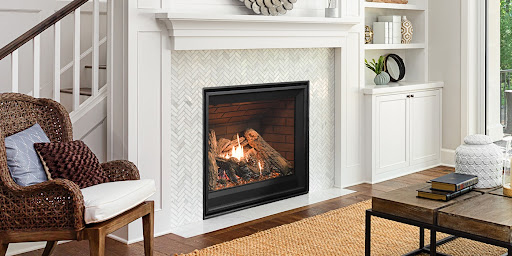Heat Pump vs. Furnace: Which Is Best for Your Home in 2025?
Choosing the right heating system is one of the most important decisions for homeowners in Ottawa and across Ontario — especially with rising energy costs, evolving climate goals, and new heating technologies. Two of the most popular options are heat pumps and furnaces — and each comes with distinct benefits, costs, and performance considerations.
Here’s how they compare, broken down into four key categories to help you make the right decision for your home this year.
How They Work: Transfer vs. Generation
Heat pumps work by transferring existing heat from the outside air into your home — even in cold weather. In summer, they reverse this process, acting as your air conditioner. Because they move heat instead of generating it, heat pumps are highly efficient and versatile, offering both heating and cooling from a single system.
Furnaces, on the other hand, generate heat by burning fuel (usually natural gas, propane, or oil). The system then distributes the warmed air throughout your home. Furnaces are powerful and effective, especially in extremely cold climates, but they only provide heating — so you’ll still need a separate air conditioning unit.

Your Comfort, Upgraded with a Smart Thermostat
The Lennox iComfort® Wi-Fi Thermostat gives you remote control, energy savings, and year-round comfort—all in one smart touchscreen.
Cost, Efficiency, and Environmental Impact
Upfront costs: Furnaces typically cost less to install ($2,500–$6,000) compared to heat pumps ($4,000–$8,000). However, a heat pump replaces both your furnace and air conditioner, which can offset some of the higher initial expense.
Operating costs: In milder climates, heat pumps are usually cheaper to run because they deliver more heating energy than the electricity they consume — often 1.5 to 4 times as much. Furnaces may cost more to operate, but in very cold weather, they’re often more reliable and efficient.
Environmental impact: Heat pumps are the more eco-friendly choice since they don’t burn fossil fuels directly and can be powered by renewable energy. Furnaces emit carbon dioxide and other pollutants, though high-efficiency models have significantly reduced emissions compared to older systems.
Climate Performance: Cold Weather Is the Deciding Factor
Heat pumps excel in moderate climates, maintaining high efficiency even near freezing. New “cold-climate” models can now operate effectively down to -25°C, making them increasingly viable in Canadian winters. However, below these temperatures, their efficiency drops, and backup heating (often electric resistance) may be required.
Furnaces shine in consistently cold climates like Ottawa’s, where winter temperatures frequently plunge below -15°C. They deliver reliable, powerful heat regardless of outdoor conditions and don’t lose performance as the temperature drops.
If you want the best of both worlds, consider a dual-fuel system that uses a heat pump for mild weather and a furnace when it gets extremely cold — offering year-round efficiency and comfort.
Lifespan, Maintenance, and Long-Term Value
Furnaces generally last longer — about 15–20 years — and require relatively simple maintenance, usually a yearly inspection and occasional cleaning.
Heat pumps have a shorter lifespan (about 10–15 years) because they run year-round for both heating and cooling and have more components that can wear out. They require more frequent maintenance, including seasonal tune-ups and refrigerant checks.
Despite a shorter lifespan, heat pumps can offer excellent long-term value through lower operating costs and potential government rebates or incentives for adopting cleaner technology.

Final Thoughts: Which One Is Right for You?
The right choice depends on your climate, budget, and comfort goals:
Choose a heat pump if you want one system for both heating and cooling, lower monthly bills, and a more sustainable option — especially if winters in your area are moderate.
Choose a furnace if you live in a region with harsh, prolonged winters like Ottawa, prioritize powerful heating, or want lower upfront costs.
Consider a hybrid system for the most balanced approach — maximum efficiency in shoulder seasons and reliable heating power when temperatures plunge.
No matter which system you choose, professional installation and annual maintenance are essential to maximize efficiency, comfort, and lifespan.
Frequently Asked Questions (FAQ)
Are heat pumps effective in Canadian winters?
Which is cheaper to run: a heat pump or a furnace?
Do heat pumps also provide air conditioning?
How long do these systems last?
Can I replace my existing furnace with a heat pump?

Need Help Keeping Your Home Warm This Winter?
Staying comfortable in an Ontario winter doesn’t have to mean sky-high energy bills. At Climate Works Heating, Cooling & Plumbing, we’ve helped thousands of families across Ottawa and the GTA keep their homes warm and efficient all season long.
From furnace tune-ups to heat pump installations, our team of experts is here to help. Call us today or schedule a service visit to make sure your home is ready for the cold.
Contact Us
Ottawa (Headquarters)2639 Pollock Rd.
Richmond, ON, K0A 2Z0
info@climateworks.ca | 613-838-9989
Toronto & GTA
1883 Mattawa Ave.
Mississauga, ON, L4X 1K8
gtaestimating@climateworks.ca | 437-317-0699
